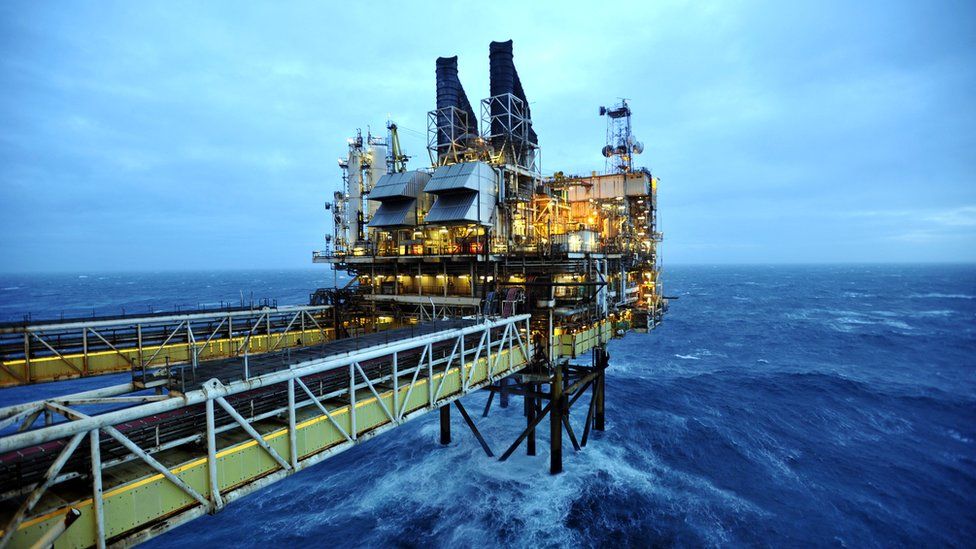Green groups condemn Budget's oil tax breaks
- Published

The Chancellor has been accused by campaigners of promising a Budget for the next generation whilst doing too little to combat climate change.
He wants to keep North Sea jobs and create tax revenue from oil and gas.
The main focus for anger was tax breaks for developing the oil and gas industry in the North Sea.
But green groups said it was irrational to seek more hydrocarbons in the week the government pledged to enshrine in law a commitment to zero emissions.
In a statement, Friends of the Earth said: "The Budget was full of 'next generation rhetoric', but tax breaks for the climate-wrecking oil and gas industry pose a real threat to the security of people, the economy and planet.
"It's almost as if the recent UN climate agreement in Paris never occurred. What happened in Paris appears to have stayed in Paris."
David Powell from the New Economics Foundation said: "If this was a Budget when we act now to avoid paying later, a Budget for the next generation, then where was the action on climate change?"
Mixed bag?
There was a mixed bag of announcements on energy and climate. It included: more support for a wealth fund for people living near shale gas sites; flood defence spending up £700m; freezing fuel duty; and tidying up a tangle of business taxes on energy - a measure welcomed by firms.
The Chancellor also followed the recommendation of his National Infrastructure Commission to herald a new chapter in energy, in which smart systems will store energy and use the internet to control energy demand.
"It's great that's going to translate into real action," said Richard Howard from the right-leaning think-tank Policy Exchange.
There was also relief among groups concerned about the climate that the Chancellor committed to a new round of auctions to supply energy from offshore wind and other less established renewables (possibly including tidal lagoons).
Sam Fankhauser from the LSE said: "This Budget will have a mixed impact on the fight against climate change. The new round of auctions is very welcome, although it is not clear if this will be sufficient to ensure the UK meets its targets for reducing greenhouse gas emissions over the next ten years."
Investor clarity
Others complain there is still no clarity for investors in renewables post-2020. Shadow Energy and Climate Change Secretary Lisa Nandy said: "Business leaders and investors have been crying out for more confidence over the government's energy strategy. Today the Chancellor failed to give it to them."
But criticism of the Budget came more for what was left out than what was put in. Policy Exchange had urged the Chancellor to adjust Stamp Duty to reward people who insulate their homes - insulation is essential to meet climate targets. But this plea was ignored - for now, at least.
And Mr Osborne's rejection of calls to raise fuel duty provoked Conservative commentator Tim Montgomerie to Tweet: "No sense in freezing fuel duty when oil prices are so low. Duty should usually move in opposite direction to cost of a barrel."
What critics called the Chancellor's low-key performance on climate came in a week of eye-catching climate news.
The month of February was shown by far by the hottest February on record - driven by El Nino with a contribution from climate change; global CO2 emissions were decoupled from economic growth for the second year in a row as nations turned to energy efficiency and renewables; and the world's biggest coal firm Peabody warned of bankruptcy as coal prices collapsed in the face of concerns about the climate.
Follow Roger on Twitter.